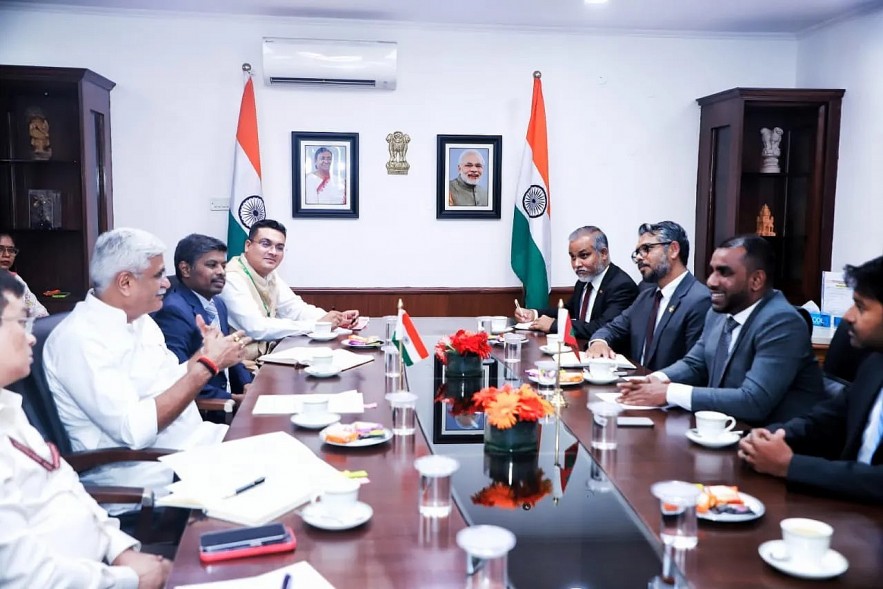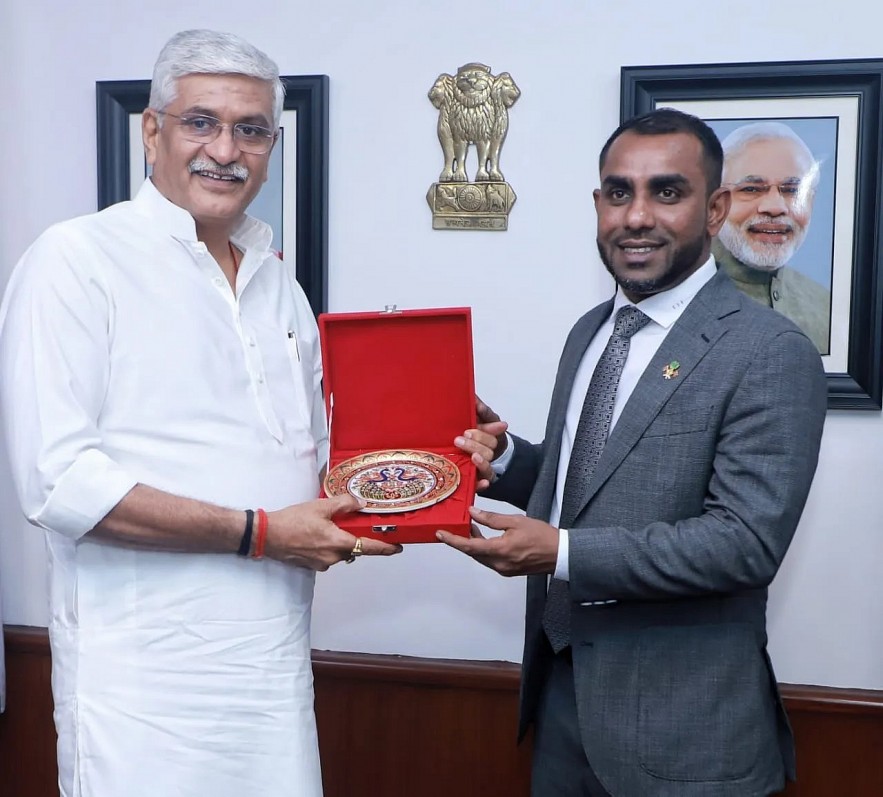 |
The Maldives is making a concerted effort to attract Indian tourists, a key demographic for the country’s tourism industry. This push comes as arrivals from India have declined by 42% in the first four months of 2024 compared to the same period last year.
The Maldives has long been a popular destination for Indian travelers, with China ranking third in terms of tourist numbers. However, this trend has seen a recent shift, prompting the Maldivian government to take action.
 |
The relationship between India and the Maldives is both strategic and complex. The Maldives occupies a critical position in the Indian Ocean, which has been a focal point of India’s ‘Neighborhood First’ policy. Historically, the two nations have shared robust diplomatic ties, with India providing substantial economic and security assistance to the island nation.
However, this relationship faced challenges during the presidency of Abdulla Yameen, who favored closer ties with China and fostered anti-India sentiments. The election of President Ibrahim Solih in 2018 brought a shift back towards warmer relations with India, but the dynamic remains delicate.
With the recent election of President Dr. Mohammed Muizzu, there are concerns that policies similar to those of the Yameen administration could resurface. This worry was heightened by the departure of 76 Indian defense personnel in May 2024, at the request of President Muizzu. This move has disrupted joint defense projects and underscores the complexities in the current India-Maldives relationship.
India has been a critical ally of the Maldives since recognizing its independence in 1965. India has provided budgetary and infrastructure support, as well as extensive defense collaborations, such as training for the Maldivian National Defence Force (MNDF) and the construction of defense infrastructure.
Despite recent setbacks, India’s contributions remain significant. Between 2021 and 2022, India offered 300 training vacancies to the MNDF, and over the past decade, it has trained more than 1,400 MNDF personnel. Key projects include the Ekatha Harbour, an Extended Coastal Surveillance radar system, and the Senahiya MNDF military hospital.
In addition to defense support, India has extended substantial economic aid to the Maldives. In August 2022, India provided over $250 million in financial assistance, and this was followed by a $50 million treasury bill in May 2024. The Exim Bank of India has also offered an $800 million line of credit to fund infrastructure and community development projects.
India’s support has been crucial in times of natural disasters. Given the geographical challenges of the Maldives, Indian defense aircraft have played a vital role in medical evacuations, rescuing over 500 lives in the past five years. This assistance underscores India’s commitment to fostering strong bilateral relations and regional stability.
However, the Maldives’ relationship with China has introduced geopolitical concerns. During the Yameen presidency, the country embraced China’s Belt and Road Initiative, leading to significant infrastructure projects funded by Chinese loans. As a result, the Maldives now faces a growing debt to China, which analysts warn could lead to a ‘debt-trap’ scenario similar to what Sri Lanka experienced with the Hambantota Port.
Despite these challenges, recent diplomatic efforts offer a glimmer of hope for improved India-Maldives relations. President Muizzu’s visit to New Delhi in May 2024 and the High-Level Core Group meeting in Malé in March 2024 are positive steps towards reconciliation and highlight the potential for progress in various bilateral initiatives.
The Maldives’ participation in regional security initiatives, despite its engagement with China, indicates a commitment to maintaining a balanced foreign policy. While the path forward for India-Maldives relations is complex, ongoing diplomatic engagements bode well for these two neighboring countries in the Indian Ocean.
Ho Chi Minh City Tourist Numbers Decrease 12% Due to COVID-19 Worries
The number of tourists paying a visit to Ho Chi Minh City during the Lunar New Year (Tet) has suffered a decline of approximately 12 per cent as a result of the ongoing novel coronavirus (nCoV) situation.








